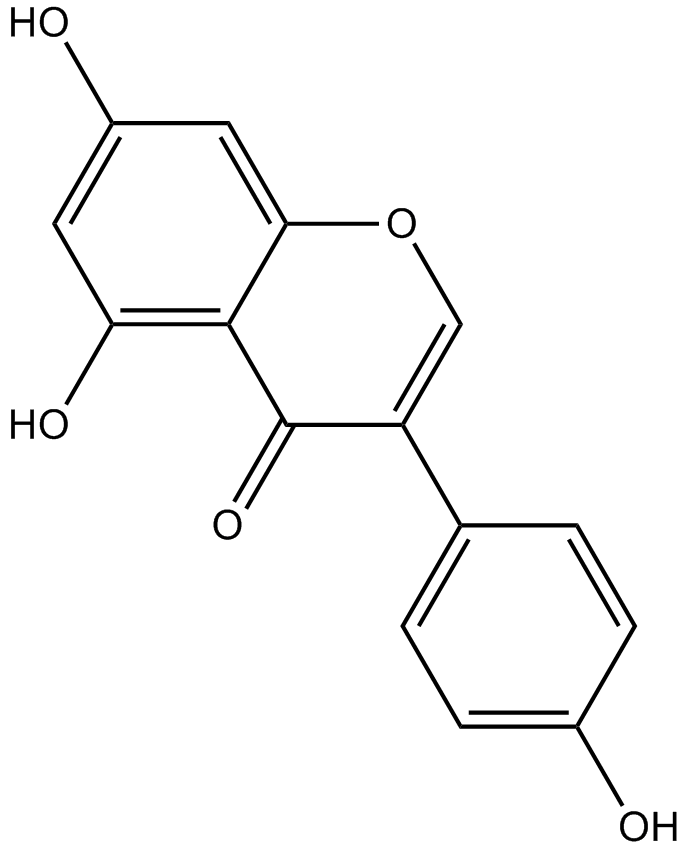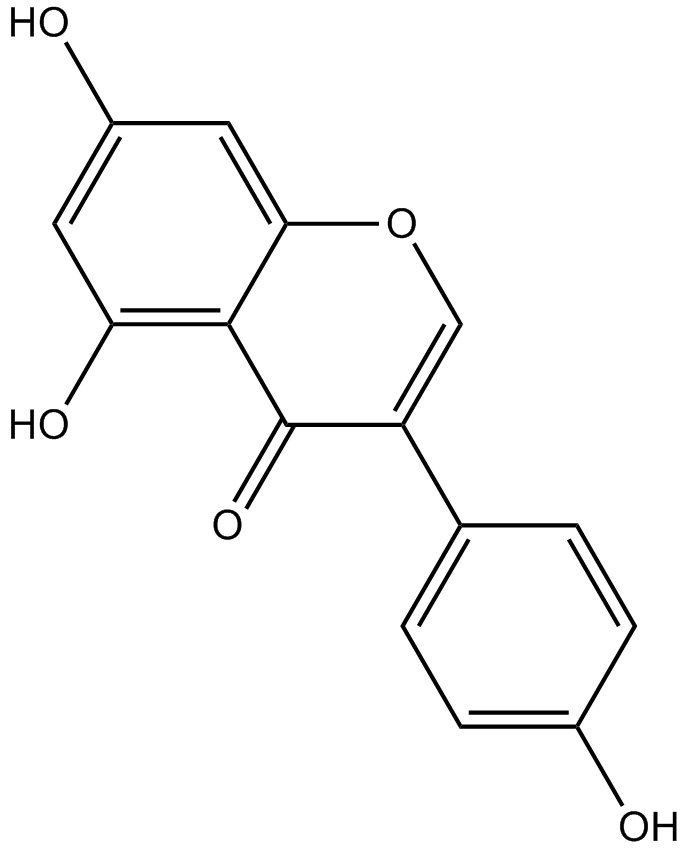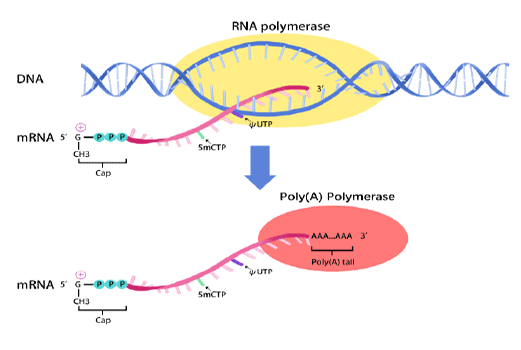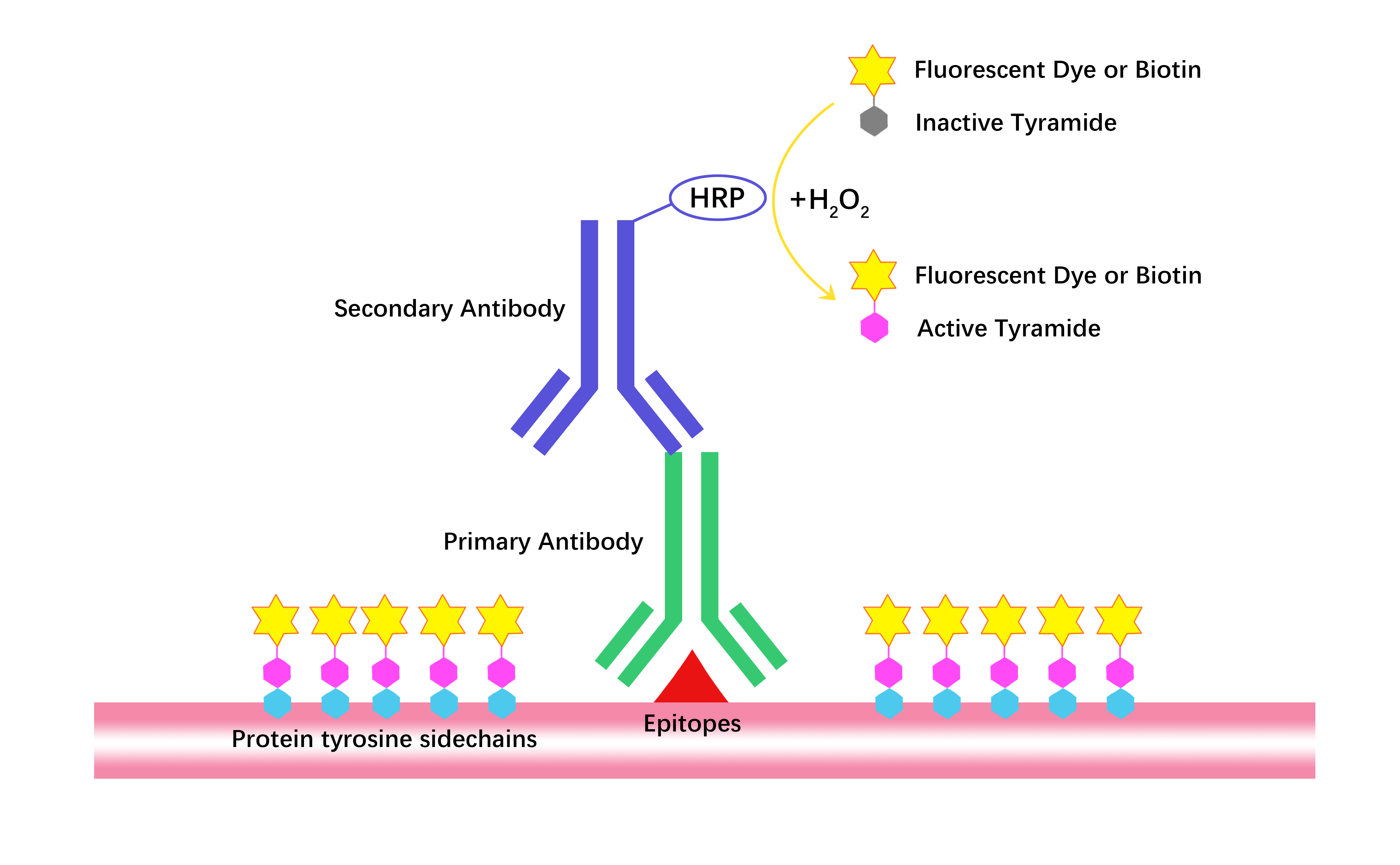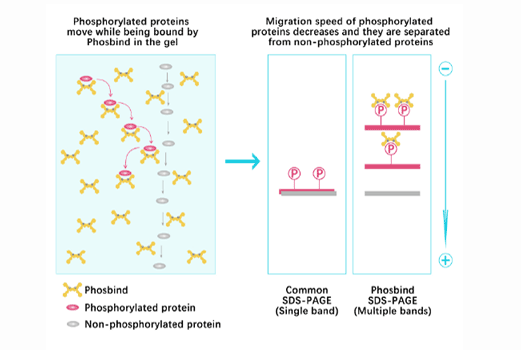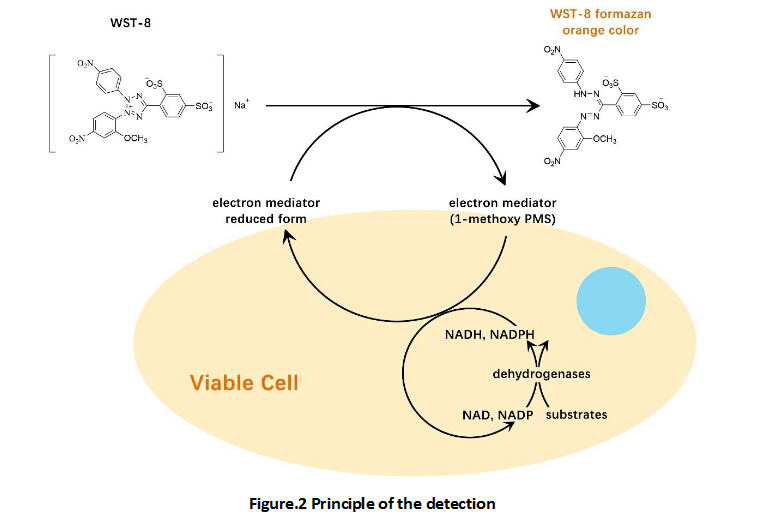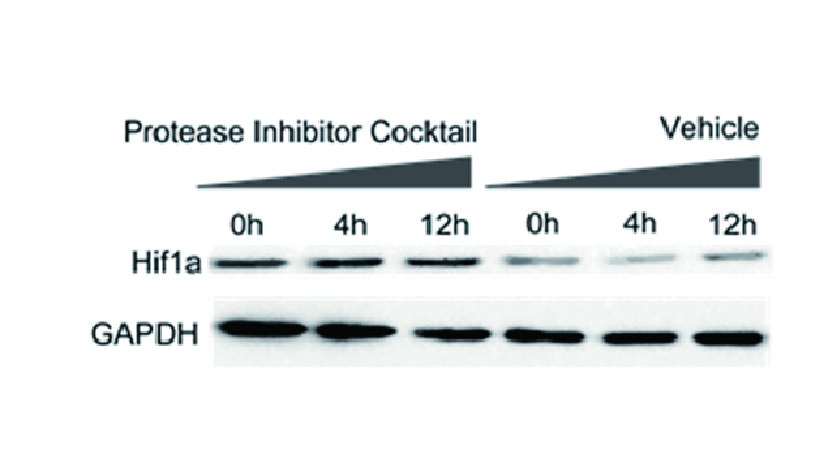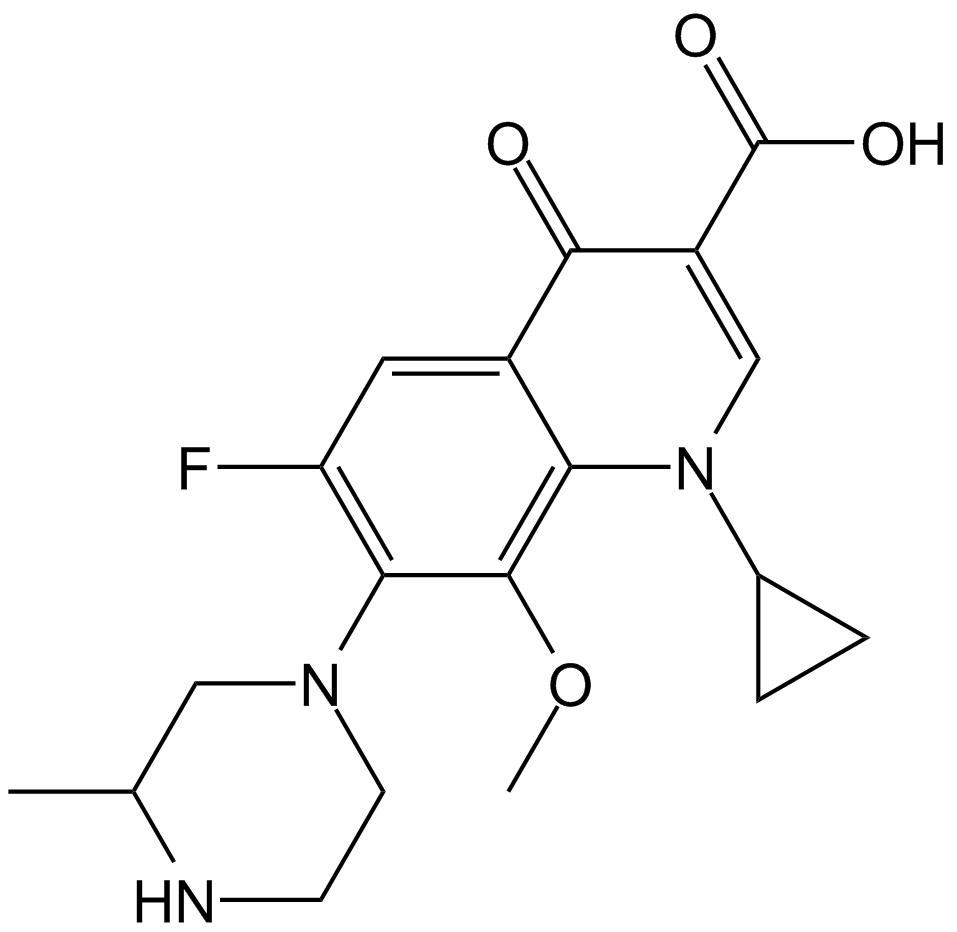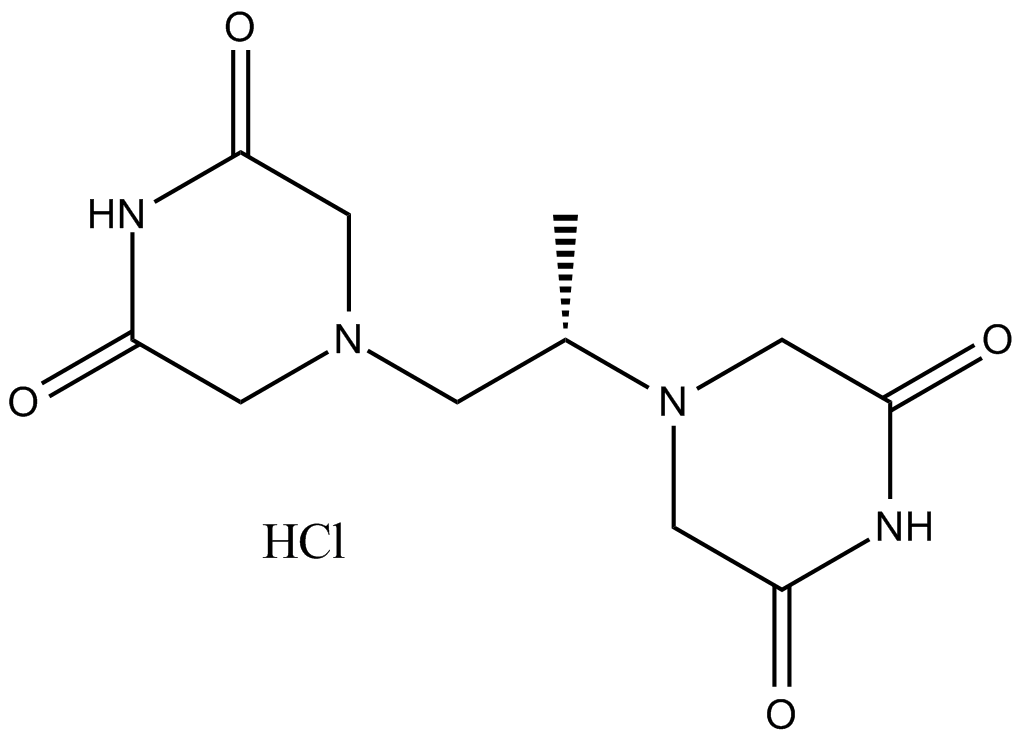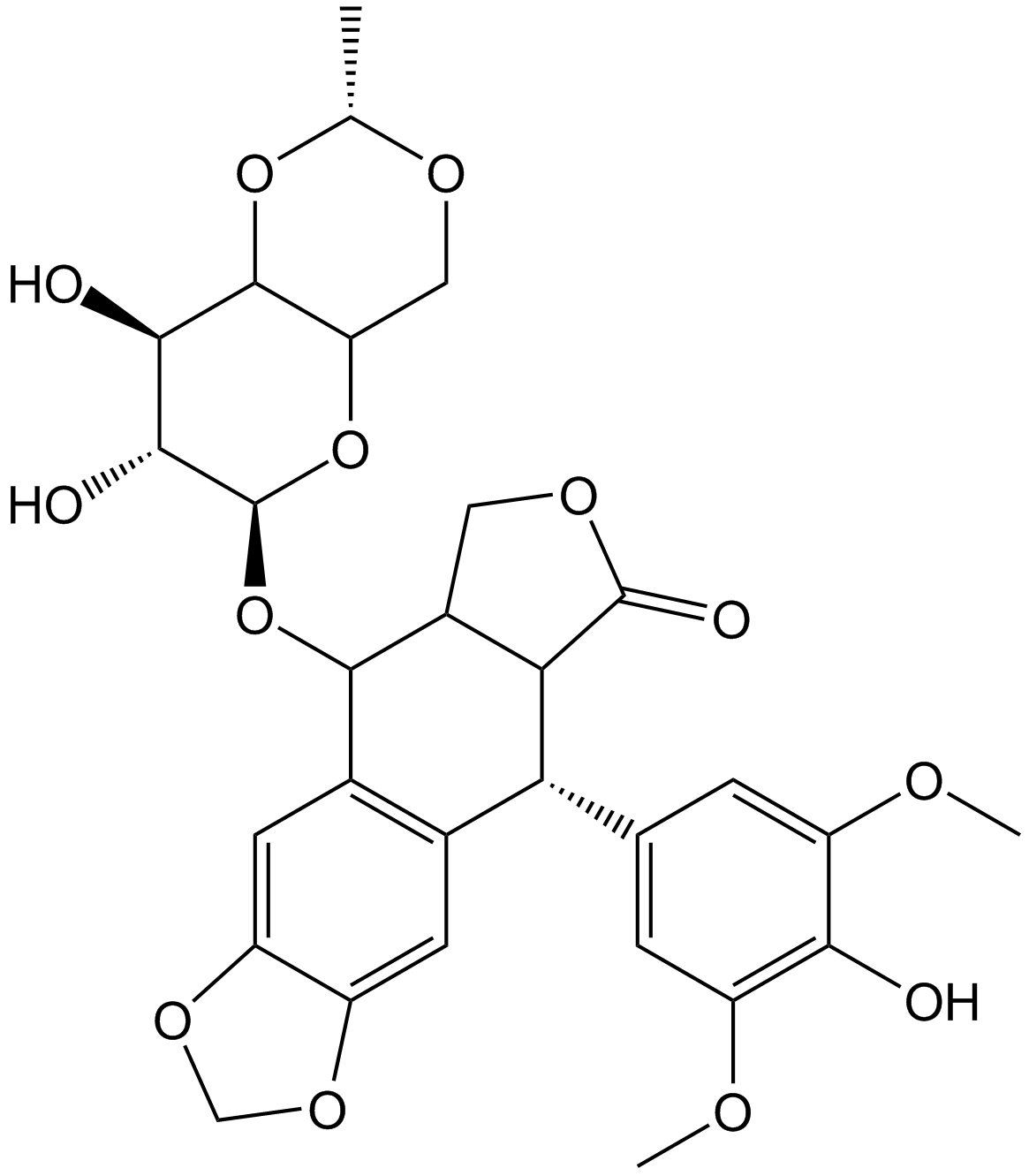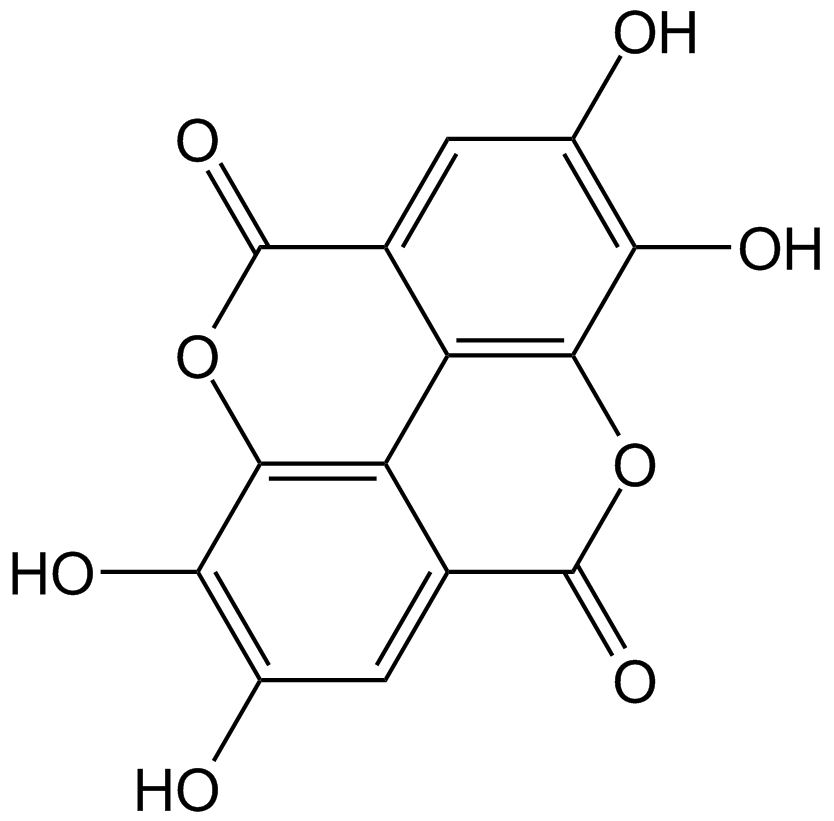Genistein
Genistein (CAS 446-72-0) is an isoflavonoid compound that selectively inhibits protein tyrosine kinases, enzymes implicated in signaling pathways associated with oncogenic activity and cellular proliferation. Genistein inhibits tyrosine kinase activity with an IC50 of approximately 8 μM. In NIH-3T3 cell assays, genistein suppresses epidermal growth factor (EGF)-mediated mitogenesis (IC50 ~12 μM) and insulin-mediated effects (IC50 ~19 μM), additionally inhibiting EGF-induced activation of S6 kinase at a concentration of 6–15 μM. In animal models, oral administration of genistein demonstrates dose-dependent inhibition of prostate adenocarcinoma development, highlighting its utility in cancer biology research and potential chemopreventive applications.
- 1. Yushi Liu, Jiawen Song, et al. "Synergistic therapy with celastrol-curcumin multifunctional nanomedicine: Anti-hepatocellular carcinoma and reduced hepatotoxicity." Int J Pharm. 2025 Feb 25:671:125289 PMID: 39880142
- 2. Yuxin Zhang, Jie Zhou, et al. "Modulating tumor-stromal crosstalk via a redox-responsive nanomedicine for combination tumor therapy." J Control Release. 2023 Apr:356:525-541. PMID: 36918084
- 3. Zhou J, Ma S, et al. "Virus-Inspired Mimics: Dual-pH-Responsive Modular Nanoplatforms for Programmable Gene Delivery without DNA Damage with the Assistance of Light." ACS Appl Mater Interfaces. 2020;12(20):22519-22533. PMID: 32329598
| Storage | Store at -20°C |
| M.Wt | 270.24 |
| Cas No. | 446-72-0 |
| Formula | C15H10O5 |
| Solubility | ≥13.5 mg/mL in DMSO; insoluble in H2O; ≥2.59 mg/mL in EtOH with gentle warming |
| Chemical Name | 5,7-dihydroxy-3-(4-hydroxyphenyl)chromen-4-one |
| SDF | Download SDF |
| Canonical SMILES | Oc(cc1)ccc1C1=COc(cc(cc2O)O)c2C1=O |
| Shipping Condition | Small Molecules with Blue Ice, Modified Nucleotides with Dry Ice. |
| General tips | We do not recommend long-term storage for the solution, please use it up soon. |
| Cell experiment [1]: | |
|
Cell lines |
NIH-3T3 cells |
|
Preparation method |
The solubility of this compound in DMSO is > 55.6 mg/mL. General tips for obtaining a higher concentration: Please warm the tube at 37 °C for 10 minutes and/or shake it in the ultrasonic bath for a while. Stock solution can be stored below - 20 °C for several months. |
|
Reacting condition |
0 ~ 1000 μM |
|
Applications |
NIH-3T3 cell growth was inhibited after Genistein treatment at concentrations of 4 ~ 75 μM for 72 hrs. At concentrations below 40 μM, Genistein-treated cells recovered growth after drug withdrawal. In contrast, at 75 μM or above, Genistein-treated cells were unable to recover growth. Cytotoxicity assessed by cloning efficiency measured after 3 hrs of Genistein treatment showed an ED50 value of 35 μM. |
| Animal experiment [2]: | |
|
Animal models |
Female SD rats |
|
Dosage form |
0, 25 and 250 mg Genistein/kg AIN-76A; p.o. |
|
Applications |
In female SD rats, Genistein dose-dependently suppressed dimethylbenz[a]anthracene (DMBA)-induced mammary tumor development. Rats exposed to 25 and 250 mg Genistein/kg AIN-76A showed 7.1 and 4.3 mammary tumors, respectively. Dietary Genistein protected against mammary tumors through regulating specific sex steroid receptors as well as growth factor signaling pathways. |
|
Other notes |
Please test the solubility of all compounds indoor, and the actual solubility may slightly differ with the theoretical value. This is caused by an experimental system error and it is normal. |
|
References: [1]. Linassier C, Pierre M, Le Pecq JB, Pierre J. Mechanisms of action in NIH-3T3 cells of genistein, an inhibitor of EGF receptor tyrosine kinase activity. Biochem Pharmacol. 1990 Jan 1;39(1):187-93. [2]. Lamartiniere CA, Cotroneo MS, Fritz WA, Wang J, Mentor-Marcel R, Elgavish A. Genistein chemoprevention: timing and mechanisms of action in murine mammary and prostate. J Nutr. 2002 Mar;132(3):552S-558S. |
|
Quality Control & MSDS
- View current batch:
Chemical structure
